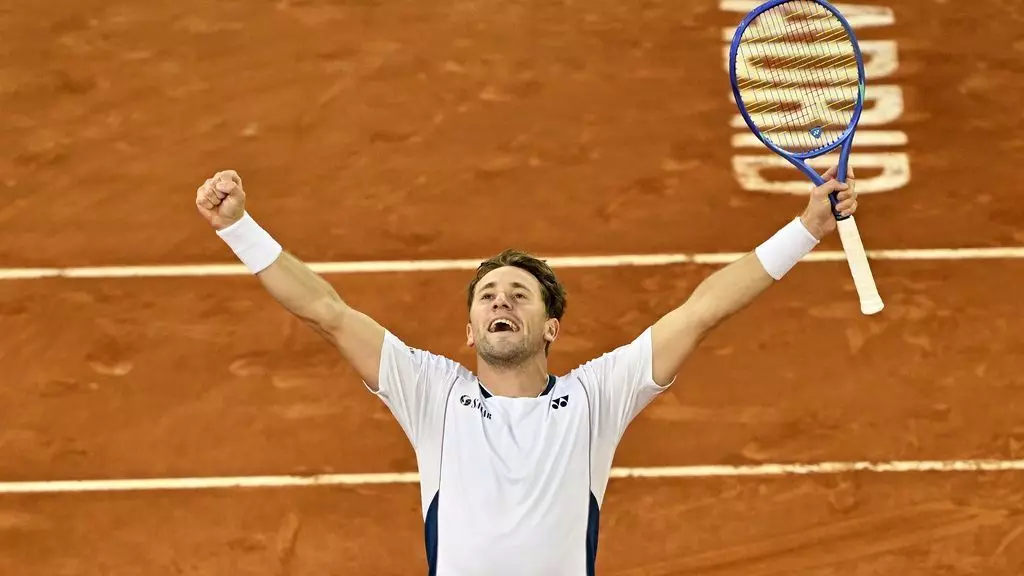In a remarkable display of resilience and tenacity, Casper Ruud etched his name into the annals of tennis history by becoming the first Norwegian ever to clinch a Masters 1000 title. His three-set victory over Jack Draper at the Madrid Open signifies more than just a trophy—it’s a watershed moment for Norwegian tennis. What sets this victory apart is how Ruud transformed adversity into opportunity, especially after confronting a significant deficit in the first set. His ability to rally back from 3-5 against a formidable opponent demonstrates an unwavering competitive spirit that inspires aspiring athletes globally.
A Rollercoaster of Emotions on the Court
The final match against Draper showcased a riveting battle not just of skill but of mental fortitude. Ruud, who faced a challenging injury prior to the tournament, put aside his discomfort and displayed remarkable poise. After securing a vital break in the third set, his euphoric celebration—arms raised high in triumph—was emblematic of a relentless pursuit to overcome obstacles. In contrast, Draper struggled to maintain composure after serving for the first set at 5-4, leading to visible frustration and emotional turmoil. This juxtaposition highlights the psychological complexities that underpin top-level competition; while Ruud thrived under pressure, Draper faltered, reminding us that mental toughness is as crucial as physical skill in sports.
Contextualizing the Journey to Success
Ruud’s ascent to the ATP top 10, moving to No. 7 on the rankings post-Madrid, illustrates not only a personal achievement but also the broader narrative of hard work and perseverance. This victory is particularly significant as Ruud had previously faced disappointments in two Masters finals, emphasizing that victories often arise from learning and growth through losses. His journey also comes with the backdrop of an unpredictable tournament marked by significant disruptions, including a major blackout that halted play. Such external challenges amplify the significance of his win, as they tested not just players’ physical capabilities but also their adaptability and focus.
The Rise of a Champion in a Changing Landscape
The Madrid Open final highlights the shifting dynamics in men’s tennis. With elite players like Carlos Alcaraz and Novak Djokovic falling early, it paves the way for new talents to make their mark—a changing of the guard, if you will. Ruud’s rise parallels this emerging trend where established icons are giving way to a new generation that brings fresh excitement to the sport. For fans, witnessing the emergence of players like Ruud and Draper is a thrilling reminder that the landscape of tennis is ever-evolving, ripe with unexpected narratives and rivalries.
The Ripple Effect of a Historic Win
The implications of Ruud’s victory extend beyond individual accolades. As Norway’s first Masters 1000 champion, he sets a precedent for future generations. His success lightens the path for young Norwegian talents, showcasing that with determination and grit, greatness is attainable. Such victories inspire countries with lesser representation in the sport to invest in tennis programs, nurturing the next cohort of champions. Ruud’s win at the Madrid Open isn’t just a personal triumph; it is a rallying cry for athletes everywhere, reinforcing the notion that perseverance, strategy, and belief in oneself are key to transforming dreams into reality.


Leave a Reply